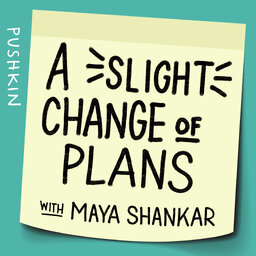Inside the NBA Players Association
Michele Roberts, executive director of the NBA Players Association, discusses how power is negotiated between NBA players and the league. She also comments on the rise of player activism and gives an inside perspective on recent NBA negotiations including the conditions of “the bubble” and the decision not to mandate COVID vaccinations.
Learn more about your ad-choices at https://www.iheartpodcastnetwork.com
In 1 playlist(s)
Deep Background with Noah Feldman
Behind every news headline, there’s another, deeper story. It’s a story about power. In Deep Backgro…Social links
Follow podcast
Recent clips

Sneak Preview: The Other Side of Change by Maya Shankar
41:49

The Future of COVID-19 with Marc Lipsitch
37:05

How One Bank Shaped American Capitalism
32:06
 Deep Background with Noah Feldman
Deep Background with Noah Feldman